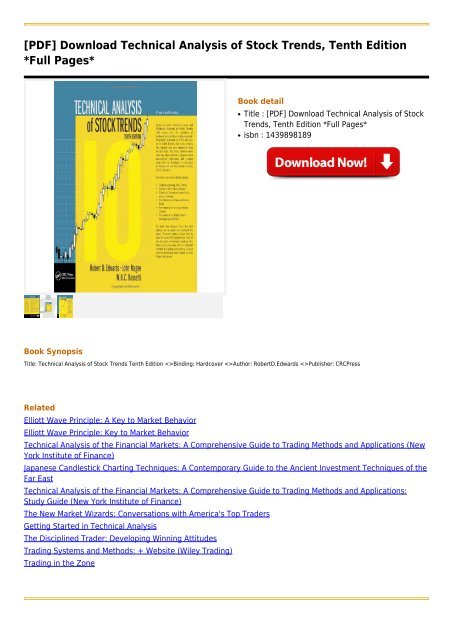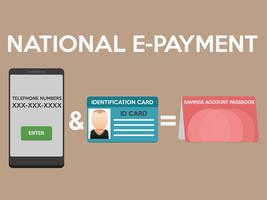

The assessee while computing income from business or profession is required to ensure compliance with section 40/. Once the assessee makes voluntary disallowance u/s.40/ for non-deduction of tax at source, he cannot be subject to TDS provisions again so as to make the assessee liable to pay the tax u/s. Instead, applicability of TDS on provision for expenses was solely made on the basis of the explanation embodied in section 194C. Unfortunately, money transactions do not give information about other necessary business activities, such as revenue primarily based on credit extended to customers or an organization’s future liabilities. By recording accruals, a company can measure what it owes in the quick-term and also what cash revenue it expects to receive.
Banks make loans to borrowers, which come with a risk that the loan will not be paid back. Loan loss provisions work similarly to the provisions that corporations make, in that banks set aside a loan loss provision as an expense. Loan loss provisions cover loans that have not been paid back or when monthly loan payments have not been met. Companies elect to make provisions for future obligations whose specific amount or date is unknown. The use of accrual accounts greatly improves the quality of knowledge on monetary statements.

Unfortunately, XYZ Corp is not able to keep its obligation and defaults on the payment. In this situation, ABC Corp has amount receivable in its books which is not going to come. As most of these large companies are listed entities, they have the obligation to declare their financial position every quarter, as accurately as possible.
When to recognize a provision?
The 2019 financial statements have to replicate the bonus expense earned by staff in 2019 as well as the bonus legal responsibility the company plans to pay out. Therefore, prior to issuing the 2019 financial statements, an adjusting journal entry records this accrual with a debit to an expense account and a credit to a liability account. In difference between provision and accruals-based accounting, accruals refer to expenditures and revenues incurred or earned but not recorded in account books. Adjustment entries to report these at the end of an accounting period are incorporated in the financial statements. The offset to accrued income is an accrued asset account, which also seems on the balance sheet.
- Just upload your form 16, claim your deductions and get your acknowledgment number online.
- This form of accounting ensures that all financial information including sales on credit and end of the month interest to be paid are recorded for the period.
- In conclusion, first consider whether a bonus obligation meets the definition of a liability before considering whether it should be recognised as a liability or a provision.
- • Accruals are made for expenses already known and expected to materialize in the future, whereas provisions are made for expected future losses, so that these losses may be recovered from the provisions kept aside.
- A liability is a present obligation of the entity arising from past events, the settlement of which is expected to result in an outflow from the entity of resources embodying economic benefits.
The offset to accrued revenue is an accrued asset account, which also appears on the balance sheet. Therefore, an adjusting journal entry for an accrual will accrual vs provision impact both the balance sheet and the income statement. The use of accrual accounts greatly improves the quality of information on financial statements.
Accrual vs Provision
Accruals impact a company’s bottom line, although cash has not yet exchanged hands. Accruals are important because they help to ensure that a company’s financial statements accurately reflect its actual financial position. Maintaining books of accounts under cash is simple as compared to mercantile basis of accounting.
When the companies need to measure their performance in a particular fiscal year or a quarter, they must record the expenses when the goods are purchased and revenues when the goods are supplied. The Accrual Principle is useful when it is important to match the revenues against the expenses when a financial transaction occurs, regardless of when the payment is received. Provisions include accounting for probable losses such as provision for doubtful debts, provision for impairment of assets etc. IFRSIFRS or International Financial Reporting Standards refers to a globally-accepted set of accounting and financial reporting guidelines for preparing and presenting financial statements.
There are general guidelines that should be met before a provision can be justified in the financial statement. The entity must have an obligation at the reporting date; that is, the present obligation must exist. Most importantly, the event must be near-certain, or at least highly probable.
In every quarterly result, they record the revenue, the profit generated, the gross profit margin, their assets and liabilities, etc. Cash accounting is quite inefficient in measuring these factors and show how a business performed in a particular period. Cash Accounting has no provision to account for payments that will be received in future. These categories are also referred to as accrual-type adjusting entries or simply accruals.

It does not really matter what type of obligation you deal with – whichever it is, it leads to a provision. However, if you identify the obligation, it can help you to decide whether recognize a provision or not. As for the presentation, you should present the difference between the provision and the actual expense in the same line as the expense for the original provision.
Contingent liabilities
If you identify you have a contingent liability, you do NOT recognize it – no journal entry. You should only make appropriate disclosures in the notes to the financial statements. Except for provisions, we can deal both with contingent liabilities and contingent assets. Accrual accounting is where a business records revenue or expenses when a transaction occurs using the double-entry accounting method.
In contrast, provision aims to protect the business from a heavy cash outflow in the future and make provision for any un-probable event. Companies make provisions to meet their future obligations, although the exact expense is unknown at the time the company makes the provisions, or whether the provision will even be necessary. By the time the contingency occurs, the company will already have sufficient funding to address the incident. This prevents any financial loss that would directly impact a business’ operations. In general, the rules for recording accruals are the same as the rules for recording other transactions in double-entry accounting.
Please how do we account for spare part stock used for warranties repairs and are refundable by insurance companies. However, you should test your assets for impairment under IAS 36 Impairment of Assets. To get better understanding and guidance on provisions and contingencies, IAS 37 presents a decision tree, too.
Prepaid ExpensePrepaid expenses refer to advance payments made by a firm whose benefits are acquired in the future. Payment for the goods is made in the current accounting period, but the delivery is received in the upcoming accounting period. The objective of accruals is to report the correct numbers of revenue and expense for that period and forecast certain receivables and payables.
Accrual
Similarly, expenses are recorded when they are incurred, regardless of when they are paid. For example, if a company incurs expenses in December for a service that will be received in January, the expenses would be recorded in December, when they were incurred. Accruals are revenues earned or expenses incurred that impact a company’s net income on the income statement, although cash related to the transaction has not yet changed hands. Every business has expenses – all types of expenses occurring for different purposes and at different stages of the business. Correct accounting for expenses is important to ensure that the financial statements reflect the true and fair position of a company’s financial position. Suppose ABC Corp. supplies goods to XYZ Corp on credit, for which the payments are to be received in the next 90 days.
Difference between Provisions and Accruals
This is where IAS 37 is used to ensure that companies report only those provisions that meet certain criteria. The details of this article explain in very simple terms the accrued expenses meaning and their importance. The article also is informative with examples of accrued expenses and how they play a crucial role in understanding the financial health of an organisation. No provision will be acknowledged for costs that must be incurred to operate in the future. However, when the inflow of benefits is virtually certain an asset is recognised in the statement of financial position, because that asset is no longer considered to be contingent.
The key principle established by the Standard is that a provision should be recognised only when there is a liability i.e. a present obligation resulting from past events. Provision involves recording of expenses or losses that have not yet been incurred but they may be incurred on the occurrence or non-occurrence of certain events. Since provisions are made on a probable basis that an incident may or may not occur, they may not be able to quantified with certainty. Therefore, they are often accounted for on the basis of some reliable estimate.
The accrual basis of accounting of an expense means reporting of that expense and the related liability in the given period in which accrual expense occur. Every business is concerned with managing its expenses, since its main goal is to maximize its profit. In fact, accruals help in demystifying accounting ambiguity relating to revenues and liabilities. As a result, businesses can often better anticipate revenues while tracking future liabilities. If companies incurred expenses (i.e., received goods/services) but didn’t pay for them with cash yet, then the expenses need to be accrued. Whether an accrual is a debit or a credit depends on the type of accrual and the effect it has on the company’s financial statements.
It’s very difficult to draw clear lines between accrued liabilities, provisions, and contingent liabilities. In many respects, the characterization of an expense obligation as either accrual or provision can depend on the company’s interpretations. On the other hand, when the company has provided services or goods, payment has not yet been received. Although not paid in full, it is expected to be paid in the next fiscal period. In addition to accruals adding another layer of accounting information to existing information, they change the way accountants do their recording.
Нет Ответов